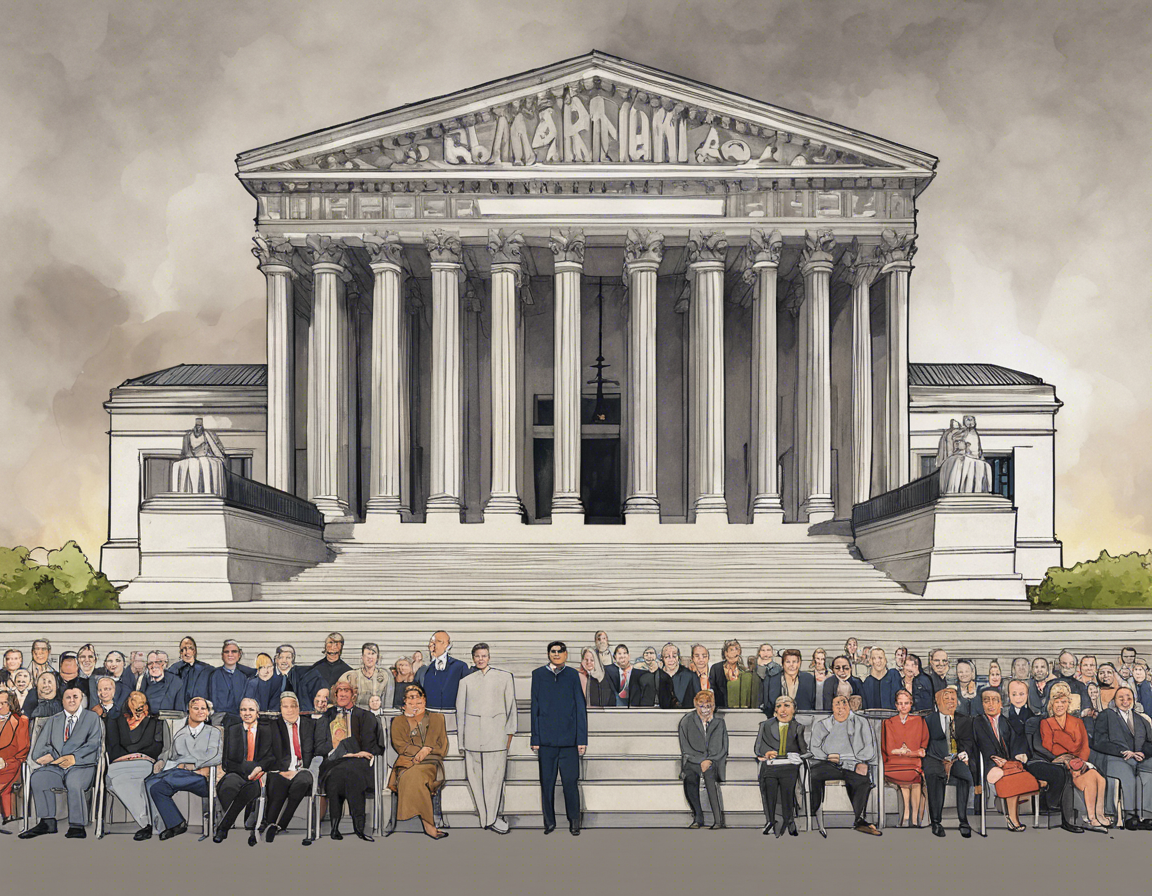The ongoing Adani Supreme Court hearing has garnered significant attention and speculation in recent months. The outcome of this case could have far-reaching implications for both the environment and the economy. In this comprehensive article, we will discuss what to expect from the Adani Supreme Court hearing, the key issues at play, and the potential outcomes.
Understanding the Background
The Adani Group, a multinational conglomerate with interests in various industries, has been embroiled in legal battles and controversies over its proposed projects. The most notable of these is the contentious Carmichael coal mine, which has faced intense scrutiny due to its potential environmental impact.
Key Issues at Play
-
Environmental Concerns: One of the primary issues surrounding the Adani Supreme Court hearing is the environmental impact of the Carmichael coal mine. Critics argue that the project could have adverse effects on the Great Barrier Reef and exacerbate climate change.
-
Indigenous Rights: The Carmichael coal mine is located on the lands of the Wangan and Jagalingou people, who have raised concerns about the impact of the project on their rights and traditional way of life.
-
Economic Benefits vs. Environmental Costs: Proponents of the project argue that the Carmichael coal mine would create jobs and stimulate economic growth, while opponents question the long-term viability of coal in a transitioning energy landscape.
Potential Outcomes
-
Approval with Conditions: The Supreme Court could potentially approve the project with certain conditions to mitigate its environmental impact and address concerns raised by stakeholders.
-
Rejection of the Project: There is also a possibility that the Supreme Court could decide to reject the Carmichael coal mine project altogether, citing environmental and indigenous rights concerns.
-
Further Delays or Legal Battles: Given the complexity and controversy surrounding the project, it is also possible that the Supreme Court could defer its decision, leading to further delays or triggering additional legal challenges.
What to Expect from the Hearing
-
Legal Arguments: The hearing is likely to involve detailed legal arguments from both the Adani Group and various stakeholders, including environmental groups, indigenous rights activists, and government representatives.
-
Public Interest: The Adani Supreme Court hearing has attracted significant public interest and media coverage, indicating the importance of the case and its potential implications.
-
Expert Testimonies: Expert witnesses may be called upon to provide evidence and insights on the environmental, economic, and social aspects of the Carmichael coal mine project.
-
Judicial Review: The Supreme Court will conduct a thorough review of the case, weighing the competing interests and legal arguments presented before making a decision.
Frequently Asked Questions (FAQs)
- What is the Adani Supreme Court hearing about?
-
The Adani Supreme Court hearing pertains to the contentious Carmichael coal mine project proposed by the Adani Group in Australia.
-
What are the key issues surrounding the Carmichael coal mine project?
-
The key issues include environmental concerns, indigenous rights, and the economic viability of the project.
-
Why is the Carmichael coal mine project so controversial?
-
The project has sparked controversy due to its potential impact on the environment, specifically the Great Barrier Reef, and its implications for indigenous communities.
-
What are the potential outcomes of the Adani Supreme Court hearing?
-
The project could be approved with conditions, rejected entirely, or face further delays and legal challenges.
-
How will the Supreme Court make its decision on the Carmichael coal mine project?
- The Supreme Court will consider all legal arguments, expert testimonies, and public interest concerns before arriving at a decision.
In conclusion, the Adani Supreme Court hearing is a pivotal moment that will shape the future of the Carmichael coal mine project and have broader implications for environmental protection, indigenous rights, and energy policies. Stay tuned for updates on this significant legal battle.

